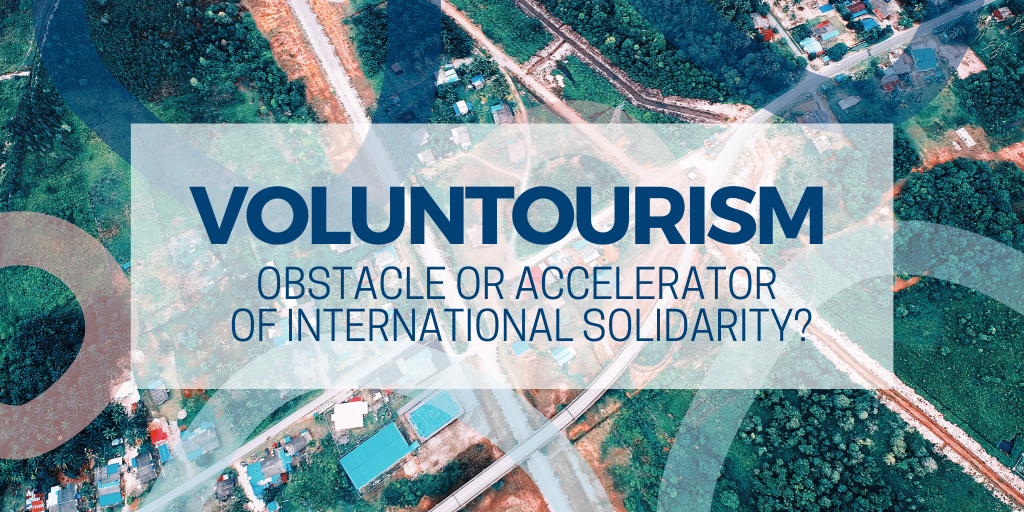
According to the United Nations, volunteerism is an essential vehicle for achieving the Sustainable Development Goals that the international community has set for 2030. Volunteering improves development, here as elsewhere, because it feeds the societal need to improve the human condition. In recent years, a type of volunteering has surfaced to fulfill both the desire to “volunteer” and partake in “tourism” for development purposes. This type of volunteerism is called voluntourism. Not surprisingly, it has enticed many well-intentioned Westerners to travel and volunteer in the Global South. Voluntourism has become either a tourist activity in itself or is callously pitched as a benevolent activity as part of a travel package. Even today after years of criticism, voluntourism is a trend that has surprisingly remained relevant.
Voluntourism, still discussed today
J.K Rowling, the author of the popular Harry Potter series, discouraged youth from volunteering in orphanages abroad while speaking at the One Young World Summit in London in October 2019. Indeed, for more than forty years, Cambodia has witnessed a growing number of fake orphanages in order to meet the high demand of voluntouring opportunities. Several unscrupulous networks take advantage of individuals travelling in the country to promote orphanages and generate profit. To counter this challenge, J.K. Rowling initiated the campaign #HelpingNotHelping, within her organization, Lumos, which she co-founded in 2005. Her campaign is even referenced by the Government of Great Britain, who published a travel guide containing information on volunteering abroad. In this guide, young people are referred to a select few reliable organizations, encouraged to research and referred to the International Volunteer Cooperation Organization (IVCO). These resources exist to share tools and information to standardize volunteerism for development and to avoid accentuating some of the negative effects of voluntourism. The 2019 IVCO paper entitled “Developing the Global Standard for Volunteering Development” is one of its relevant resources demonstrating that volunteering abroad is not always bad.
Why is voluntourism so criticized?
International awareness and human curiosity attract many young people with a genuine interest in international development. Such experiences range from building a water well or school, to teaching English, to medical intervention.
Even if the traveller is generally well intentioned, voluntourism is often a problem. These types of experiences lead to harsh criticisms around key issues such as the high cost of this activity, the underestimation of the capacities of local organizations, the minimal knowledge of the social, economic and political context of the community, and the rapid rotation of poorly equipped and informed volunteers.
The expenses related to airfare, travel insurance, training and logistics that volunteers usually have to pay for out of their own pockets, clearly demonstrate how privileged they are compared to individuals in the targeted community. Some critics point out that these expenditures could instead be used by local organizations with a better understanding of community needs.
The Internet is bombarded with articles, blogs and literature peeling back the complexity of voluntourism. Several documentaries and Youtube videos cover the subject. The documentary “Volunteers Unleashed“, attempts to inform the public of the consequences of voluntourism. This thought-provoking CBC documentary clearly shows us that volunteering abroad can be more effective and ethical from voluntourism if the criteria for the placement is more rigorous.
What are the potential solutions?
Whether the volunteer opportunity is in Canada or elsewhere, it is important to create a valuable volunteer experience for ALL parties involved. To achieve the objectives of not only the volunteer, the organization and the beneficiaries, it is important that the volunteer interacting with the targeted community a) be equipped with adequate skills, b) be knowledgeable and c) have received quality training before his/her placement. In return, organizations have a responsibility to understand the needs of the community and support its capacity for action.
The Value of Volunteering Wheel is an excellent tool – for both local and international volunteering. It highlights the importance of building confidence, competence, connections and community. Indeed, volunteering abroad should focus on these four points to develop a two-way relationship: one from which the volunteer and the community benefit.
Skills-Based Volunteering and capacity building are both part of the solution. Skills-based volunteering ensures that volunteers perform tasks that are relevant to their field of expertise and that allow the organization to build trust with the community. At the same time, capacity building – a strategy that enables an organization to carry out its mission effectively – is a method that should be encouraged on a regular basis. By analyzing the resources available to the organization, it would be easier for it to address its gaps in order to excel in its collaboration with the community. Transparency and collaboration can always be improved – regardless of the size and resources of the local, regional, national or international organization.
To conclude…
For the volunteer, the solution is simple; seek information and ask questions. In the Quel est l’impact des séjours de solidarité internationale (French only), published by Le Devoir, Katina Binette, program manager at Association québécoise des organismes de coopération internationale (AQOCI), provides several key questions a volunteer should ask in order to choose an ethical organization to collaborate with.
The portrait of voluntourism painted by this blog is not intended to discourage the pursuit of a volunteer experience abroad, but rather to encourage reflection. Whether voluntourism is good or bad, it influences the dynamics between the beneficiary organizations and communities abroad. This is why volunteers must ask themselves questions, because they, like organizations and governments, also have a responsibility in terms of international solidarity to achieve the sustainable goals.
